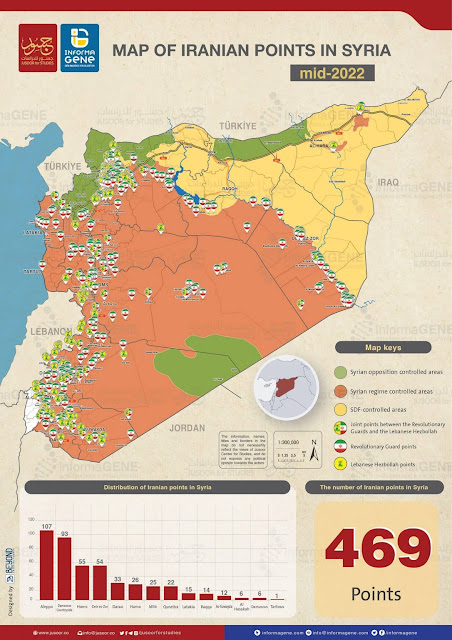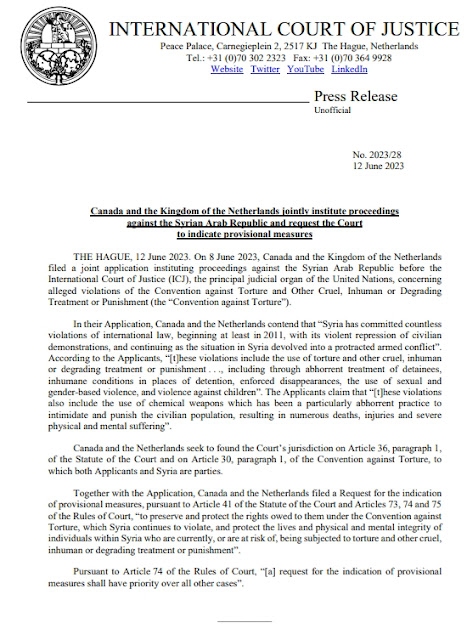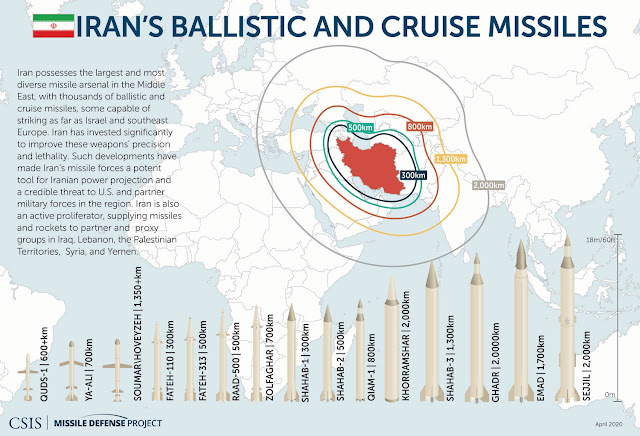Egypt Holds a Multiple-Choice Vote, but the Answer Is Mubarak
By MICHAEL SLACKMAN
The New York Times
Published: September 8, 2005
CAIRO, Sept. 7 - Egyptians voted Wednesday in the nation's first multicandidate race for president, and while Egypt has clearly not yet shaken off decades of one-man, one-party rule, the streets were calm, protesters were allowed to block city traffic and voters could cast a ballot for someone other than Hosni Mubarak.
This election was far from free and fair, based on visits to polling stations around the city. But it was a step forward, no matter how small, for a country that has operated under a state of emergency for decades, that has never allowed opposition candidates to appear on a presidential ballot and that routinely sanctioned violence as a tool on Election Day, political analysts and government critics said.
"There are violations but in comparison to before, it's much better than we expected," said Gasser Abdel Razeq, a member of the board of the Egyptian Organization for Human Rights and a frequent critic of the government's heavy-handed tactics.
Independent civic groups said turnout seemed low, but election officials said figures would not be immediately available. Mr. Mubarak's party was eager to bolster the vote's credibility by encouraging higher turnouts.
Still, it was clear that Mr. Mubarak would win - and that his supporters would do what they needed to make that happen. Polling stations around the capital were swamped with Mr. Mubarak's supporters, and in several districts around the city people who promised to vote for the president were given raffle tickets offering prizes that included an apartment, a pilgrimage to Mecca, a bedroom furniture set, televisions, refrigerators and stoves.
Polling stations opened at 8 a.m. and closed at 10 p.m. Mr. Mubarak faced nine opponents, though only two had any real following. After so many years in power, and with a political patronage system that employs about seven million people, Mr. Mubarak was expected to win easily. By law, after ballots are counted, the presidential commission has three days to announce official results.
At a late-night news conference, the minister of information, Anas el-Feky, acknowledged that there were some problems at the polls, but he emphasized the unprecedented nature of the vote.
Even before the balloting began, there was concern that the election would be plagued by fraud and tampering because outside monitors were barred.
A special presidential election commission, which was created with the constitutional amendment that allowed for multicandidate elections, prohibited foreign monitors. The commission also banned civic organizations from serving as poll monitors - then reversed itself hours before the polls were to open, giving few groups the chance to set up monitoring operation around the country.
The only monitors scheduled were judges, who sat inside the polling stations, but they were removed from the activities and political pressure tactics taking place outside.
"I am really sad that this commission failed to establish the desired rules of integrity and guarantees of transparency," said Muhammad el-Sayed Said, deputy director of the government-financed Ahram Center for Political and Strategic Studies. "What they seem to be saying, together with state officials, is that 'you should trust us.' "
The commission has declined to explain its decisions - and governing party officials said they would not criticize the commission out of respect for the Constitution.
Without monitors in place in most of the nearly 10,000 polling stations, it was Mr. Mubarak's National Democratic Party that effectively ran the voting process. Whether they were told to or not, many people acted as if Election Day was an exercise in leader worship.
"I vote for President Mubarak because I could not find any candidate more handsome than Hosni Mubarak," said Mohany Ziad, 48, as he cast his ballot in the Cairo neighborhood of Torah, and then pressed his neighbors to vote the same way.
At many polling stations, Mubarak supporters literally stood over voters as they cast their ballots. Murad Mahmoud Abdullah videotaped people in his polling station, and the message of intimidation was clear. Khalid Ahmed Muhammad stood beside voters chanting, "Hosni! Hosni!" in a threatening manner.
And in at least one polling station, the only person who appeared to be in charge was a governing party representative who wore a Mubarak button as he told people where to go to vote.
There were other problems, too. The red ink used to mark a voter's finger to prevent him or her from voting again was easily rubbed off or washed off with water. Polling stations were chaotic and disorganized, with voters forced to wait as poll workers searched long lists of names before they were allowed to vote. Many people said they were denied the right to vote because their names could not be located on the lists.
Mr. Mubarak's campaign also complained that judges were not following the rules and were slowing down the process.
And there was the matter of the raffle. People were lured to the polls by supporters of the National Democratic Party who offered the prospect of extravagant gifts in exchange for their votes. In many cases, people walked up to the ballot box holding the stub of their raffle ticket in their hand. Governing party officials said that the raffle was not organized by the party, but that it was probably the work of local supporters.
Still even some of the government's harshest critics said that while the process appeared heavily tilted in favor of Mr. Mubarak, it was far better than in years past when voters were bullied by thugs, and ballot boxes were brazenly stuffed.
"It is too soon to say but it appears there are some violations but nothing major," said Ghada Shahbandar, founder of a committee that worked to monitor the elections. "To an extent we can say there is a greater degree of fairness compared to before."
Even Mr. Mubarak's most outspoken critics - members of the movement called Kifaya, or Enough - were taken aback when they crowded into the symbolic center of the city and were allowed to chant antigovernment slogans for hours without being thrashed or chased off by the police.
"We are kind of shocked they didn't beat us," said Ahmad Salah, a Kifaya member who was one of several hundred protesters blocking traffic in Tahrir Square.
While victory was virtually assured for Mr. Mubarak and his party, turnout remained a concern. After so many years of one-party rule, which stifled political participation, officials said turnout in cities was traditionally about 4 percent, and in the countryside, where patronage drove people to the polls, generally around 15 percent.
Officials with Mr. Mubarak's campaign said they were hoping for better than 25 percent - and government officials were hoping for 35 to 45 percent, figures that political observers dismissed as unlikely.
The aim for Mubarak supporters was to win enough votes to confer credibility on a fifth term for the president. And the campaign set up a process to try to achieve that. Working from a large white tent pitched in the Cairo neighborhood of Heliopolis, 500 campaign aides worked telephones trying to draw out the vote.
Aides to Mr. Mubarak's two main opponents, Ayman Nour, of the Tomorrow party, and Noaman Gomaa, of the party called Wafd, charged that the get-out-the-vote-effort had crossed over into inappropriate manipulation - a charge that the Mubarak campaign dismissed, saying it was simply better organized.
"They are bringing in large numbers of people on buses and transporting them from one place to another to give their vote to Mubarak," said Gamila Ismail, Mr. Nour's wife. "These are huge numbers and this will make a big difference."
Mr. Mubarak announced six months ago that he would support the idea of multicandidate elections and then helped push through a constitutional amendment that allowed such a race.
But the amendment also set up a presidential monitoring commission that is effectively above the law. Its decrees cannot be appealed - and that has allowed the government and Mr. Mubarak's party to deflect any criticism of the election process.
Abeer Allam and Mona el-Naggar contributed reporting for this article.
By MICHAEL SLACKMAN
The New York Times
Published: September 8, 2005
CAIRO, Sept. 7 - Egyptians voted Wednesday in the nation's first multicandidate race for president, and while Egypt has clearly not yet shaken off decades of one-man, one-party rule, the streets were calm, protesters were allowed to block city traffic and voters could cast a ballot for someone other than Hosni Mubarak.
This election was far from free and fair, based on visits to polling stations around the city. But it was a step forward, no matter how small, for a country that has operated under a state of emergency for decades, that has never allowed opposition candidates to appear on a presidential ballot and that routinely sanctioned violence as a tool on Election Day, political analysts and government critics said.
"There are violations but in comparison to before, it's much better than we expected," said Gasser Abdel Razeq, a member of the board of the Egyptian Organization for Human Rights and a frequent critic of the government's heavy-handed tactics.
Independent civic groups said turnout seemed low, but election officials said figures would not be immediately available. Mr. Mubarak's party was eager to bolster the vote's credibility by encouraging higher turnouts.
Still, it was clear that Mr. Mubarak would win - and that his supporters would do what they needed to make that happen. Polling stations around the capital were swamped with Mr. Mubarak's supporters, and in several districts around the city people who promised to vote for the president were given raffle tickets offering prizes that included an apartment, a pilgrimage to Mecca, a bedroom furniture set, televisions, refrigerators and stoves.
Polling stations opened at 8 a.m. and closed at 10 p.m. Mr. Mubarak faced nine opponents, though only two had any real following. After so many years in power, and with a political patronage system that employs about seven million people, Mr. Mubarak was expected to win easily. By law, after ballots are counted, the presidential commission has three days to announce official results.
At a late-night news conference, the minister of information, Anas el-Feky, acknowledged that there were some problems at the polls, but he emphasized the unprecedented nature of the vote.
Even before the balloting began, there was concern that the election would be plagued by fraud and tampering because outside monitors were barred.
A special presidential election commission, which was created with the constitutional amendment that allowed for multicandidate elections, prohibited foreign monitors. The commission also banned civic organizations from serving as poll monitors - then reversed itself hours before the polls were to open, giving few groups the chance to set up monitoring operation around the country.
The only monitors scheduled were judges, who sat inside the polling stations, but they were removed from the activities and political pressure tactics taking place outside.
"I am really sad that this commission failed to establish the desired rules of integrity and guarantees of transparency," said Muhammad el-Sayed Said, deputy director of the government-financed Ahram Center for Political and Strategic Studies. "What they seem to be saying, together with state officials, is that 'you should trust us.' "
The commission has declined to explain its decisions - and governing party officials said they would not criticize the commission out of respect for the Constitution.
Without monitors in place in most of the nearly 10,000 polling stations, it was Mr. Mubarak's National Democratic Party that effectively ran the voting process. Whether they were told to or not, many people acted as if Election Day was an exercise in leader worship.
"I vote for President Mubarak because I could not find any candidate more handsome than Hosni Mubarak," said Mohany Ziad, 48, as he cast his ballot in the Cairo neighborhood of Torah, and then pressed his neighbors to vote the same way.
At many polling stations, Mubarak supporters literally stood over voters as they cast their ballots. Murad Mahmoud Abdullah videotaped people in his polling station, and the message of intimidation was clear. Khalid Ahmed Muhammad stood beside voters chanting, "Hosni! Hosni!" in a threatening manner.
And in at least one polling station, the only person who appeared to be in charge was a governing party representative who wore a Mubarak button as he told people where to go to vote.
There were other problems, too. The red ink used to mark a voter's finger to prevent him or her from voting again was easily rubbed off or washed off with water. Polling stations were chaotic and disorganized, with voters forced to wait as poll workers searched long lists of names before they were allowed to vote. Many people said they were denied the right to vote because their names could not be located on the lists.
Mr. Mubarak's campaign also complained that judges were not following the rules and were slowing down the process.
And there was the matter of the raffle. People were lured to the polls by supporters of the National Democratic Party who offered the prospect of extravagant gifts in exchange for their votes. In many cases, people walked up to the ballot box holding the stub of their raffle ticket in their hand. Governing party officials said that the raffle was not organized by the party, but that it was probably the work of local supporters.
Still even some of the government's harshest critics said that while the process appeared heavily tilted in favor of Mr. Mubarak, it was far better than in years past when voters were bullied by thugs, and ballot boxes were brazenly stuffed.
"It is too soon to say but it appears there are some violations but nothing major," said Ghada Shahbandar, founder of a committee that worked to monitor the elections. "To an extent we can say there is a greater degree of fairness compared to before."
Even Mr. Mubarak's most outspoken critics - members of the movement called Kifaya, or Enough - were taken aback when they crowded into the symbolic center of the city and were allowed to chant antigovernment slogans for hours without being thrashed or chased off by the police.
"We are kind of shocked they didn't beat us," said Ahmad Salah, a Kifaya member who was one of several hundred protesters blocking traffic in Tahrir Square.
While victory was virtually assured for Mr. Mubarak and his party, turnout remained a concern. After so many years of one-party rule, which stifled political participation, officials said turnout in cities was traditionally about 4 percent, and in the countryside, where patronage drove people to the polls, generally around 15 percent.
Officials with Mr. Mubarak's campaign said they were hoping for better than 25 percent - and government officials were hoping for 35 to 45 percent, figures that political observers dismissed as unlikely.
The aim for Mubarak supporters was to win enough votes to confer credibility on a fifth term for the president. And the campaign set up a process to try to achieve that. Working from a large white tent pitched in the Cairo neighborhood of Heliopolis, 500 campaign aides worked telephones trying to draw out the vote.
Aides to Mr. Mubarak's two main opponents, Ayman Nour, of the Tomorrow party, and Noaman Gomaa, of the party called Wafd, charged that the get-out-the-vote-effort had crossed over into inappropriate manipulation - a charge that the Mubarak campaign dismissed, saying it was simply better organized.
"They are bringing in large numbers of people on buses and transporting them from one place to another to give their vote to Mubarak," said Gamila Ismail, Mr. Nour's wife. "These are huge numbers and this will make a big difference."
Mr. Mubarak announced six months ago that he would support the idea of multicandidate elections and then helped push through a constitutional amendment that allowed such a race.
But the amendment also set up a presidential monitoring commission that is effectively above the law. Its decrees cannot be appealed - and that has allowed the government and Mr. Mubarak's party to deflect any criticism of the election process.
Abeer Allam and Mona el-Naggar contributed reporting for this article.


